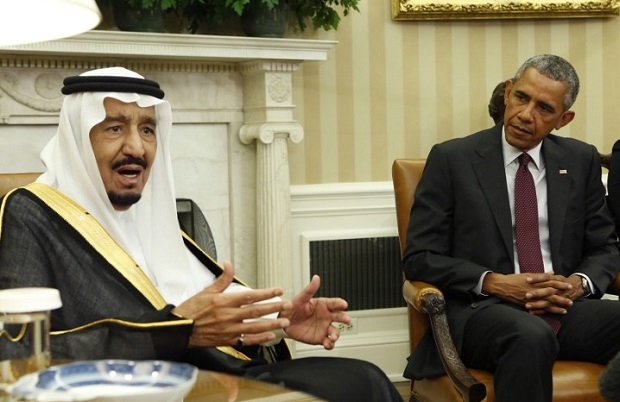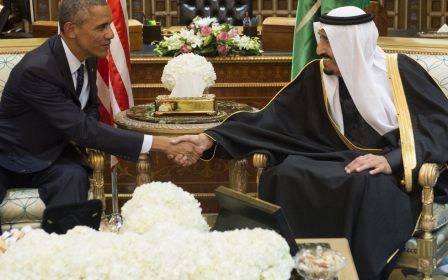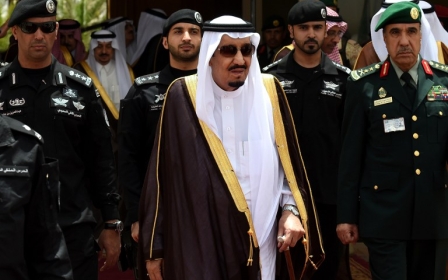Obama and Saudi king stress warm ties at White House summit

WASHINGTON - US President Barack Obama and Saudi Arabia's King Salman held a long-delayed first White House summit Friday marked by warm public words, despite differing views on Middle Eastern crises.
Obama made the rare move of greeting the 79-year-old monarch at the doors of the White House, as he hailed the "longstanding friendship" between the two countries.
Salman's inaugural visit as king - originally scheduled for May and canceled by Riyadh - had been billed as a way of putting relations back on a more stable footing.
In the Oval Office, Obama was effusive, saying he wanted to "once again reaffirm not only our personal friendship, but the deep and abiding friendship between our two people."
For his part, Salman said his visit was a "symbol of the deep and strong relationship that we have with the United States".
After the meeting, the allies released a joint statement, published by the White House and later read out at a news conference by Saudi Foreign Minister Adel al-Jubeir.
In it, they outlined their joint determination to defeat the Islamic State (IS) group and to find a political solution to the conflict in Syria that would see Bashar al-Assad step down.
Meanwhile, Jubeir said Salman accepted Obama's assurances that the nuclear deal between world powers and Iran would prevent Tehran from developing a nuclear weapon.
These meetings normally end in "some kind of public statement that puts as positive a spin as possible on the meeting," said Anthony Cordesman of the Centre for Strategic and International Studies.
New MEE newsletter: Jerusalem Dispatch
Sign up to get the latest insights and analysis on Israel-Palestine, alongside Turkey Unpacked and other MEE newsletters
Middle East Eye delivers independent and unrivalled coverage and analysis of the Middle East, North Africa and beyond. To learn more about republishing this content and the associated fees, please fill out this form. More about MEE can be found here.




